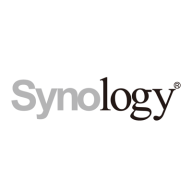

Microsoft DPM and Synology DSM are prominent contenders in the data management solutions sector, each showcasing unique advantages. Synology DSM holds a competitive edge due to its comprehensive features and cost-effectiveness.
Features: Microsoft DPM has strong integration with Windows and provides centralized backup and recovery solutions, particularly for Microsoft workloads. It also offers seamless protection for various Microsoft applications. Synology DSM provides versatile NAS capabilities, supporting a range of file services and virtualization options. It offers an extensive application support and integrates well with third-party applications, making it flexible and feature-diverse.
Room for Improvement: Microsoft DPM could improve by simplifying its setup process, reducing the complexity of integration with non-Microsoft environments, and offering more competitive pricing for smaller businesses. Synology DSM may enhance its Microsoft application support, increase scalability for large enterprises, and provide more advanced data analytics tools to strengthen its offerings.
Ease of Deployment and Customer Service: Microsoft DPM deployment is complex within Windows infrastructures and may pose challenges. It is, however, supported by robust enterprise channels. Synology DSM offers a straightforward installation with a user-friendly web-based interface and has responsive customer service supported by extensive documentation.
Pricing and ROI: Microsoft DPM has high initial setup costs, which can result in a slower ROI due to infrastructure requirements. Synology DSM is more cost-effective, offering a quicker ROI with its lower setup costs and versatile pricing structure, providing better value for small to mid-sized operations.
| Product | Market Share (%) |
|---|---|
| Synology DSM | 1.7% |
| Microsoft DPM | 0.9% |
| Other | 97.4% |


| Company Size | Count |
|---|---|
| Small Business | 9 |
| Midsize Enterprise | 7 |
| Large Enterprise | 7 |
| Company Size | Count |
|---|---|
| Small Business | 8 |
| Midsize Enterprise | 4 |
| Large Enterprise | 1 |
Microsoft Data Protection Manager (DPM) is an enterprise backup system that can be used to back up data from a source location to a target secondary location. Microsoft DPM allows you to back up application data from Microsoft servers and workloads, and file data from servers and client computers. You can create full backups, incremental backups, differential backups, and bare-metal backups to completely restore a system. Microsoft DPM can store backup data to disks for short-term storage, to Azure Cloud for both for short-term and long-term storage off-premises, and to tapes for long-term storage, which can then be stored offsite. Backed up files are indexed, which allows you to easily search your recovered data.
Microsoft DPM contributes to your business continuity and disaster recovery strategy by facilitating the backup and recovery of enterprise data, ensuring resources are available and recoverable during planned and unplanned outages. When outages occur and source data is unavailable, you can use DPM to easily restore data to the original source or to an alternate location.
Key Features of Microsoft DPM:
Reviews from Real Users
Microsoft DPM stands out among its competitors for a number of reasons. Two major ones are its robust and flexible backup capabilities and its being easy to manage with one central dashboard.
William M., the head of ICT infrastructure & security at a tech services company, notes, "The automated procedure is quite good for us, as it is able to capture all of the information that we require. The compatibility is very good. We have an IBM AS/400 machine in our office that we're using, and we're able to back it up fine. This is the same for other systems, as well. I think that overall, it is really adaptable, compatible, and scalable."
Mohammed I., a managing director at Adalites, notes, "I would definitely recommend data protection DPM. It has an application backup, a file backup, a system backup and a hypervisor. It works flawlessly, never a problem."
Rodney C. a system analyst at a financial services firm, writes, "The most valuable feature is that DPM has an index so individual files can be searched. This is our primary tool for recovering deleted files or folders. Once we implement a System Center Operations Manager, all of our DPM servers can then be seen on one dashboard."
We monitor all Backup and Recovery reviews to prevent fraudulent reviews and keep review quality high. We do not post reviews by company employees or direct competitors. We validate each review for authenticity via cross-reference with LinkedIn, and personal follow-up with the reviewer when necessary.